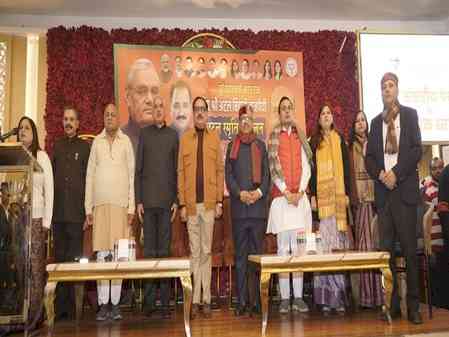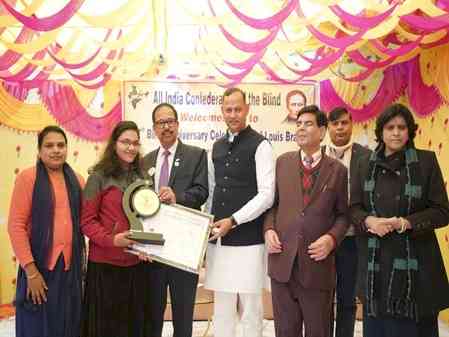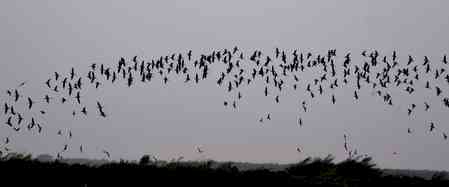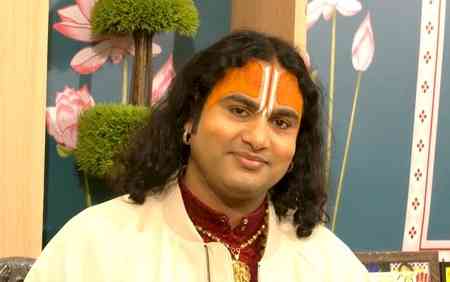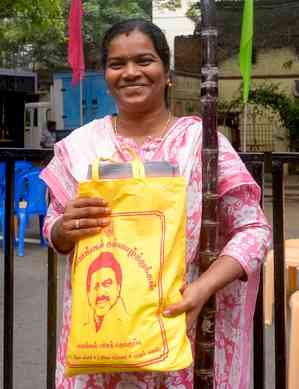Experts blame 'normalisation of violence' for spike in Odisha teen crimes
There is an increasing trend of juvenile crimes with more teens being found to be involved in violent and heinous crimes. Odisha too has witnessed a rise in such violent activities by teenagers in the recent past.

Gyan Ranjan Mohapatra
Bhubaneswar, Dec 2 (IANS) There is an increasing trend of juvenile crimes with more teens being found to be involved in violent and heinous crimes. Odisha too has witnessed a rise in such violent activities by teenagers in the recent past.
In the latest instance, a juvenile brutally murdered his teacher’s minor son, a class IX student in Benapanjuri village under Jatni police limits in Bhubaneswar on November 1.
The police during the probe found that the victim’s father used to give tuition to the accused juvenile who was staying at the house of his uncle, a neighbour of the victim’s family, two years back.
The accused hadn’t paid pending tuition dues of around Rs 3000. The victim’s father reportedly asked him several times to make the payment which angered the juvenile.
The accused stabbed the victim multiple times with a knife before fleeing the crime scene. He also confessed to the police that the tuition teacher used to boast about his son who was very good at studies so he targeted the minor to teach the victim’s father a lesson and to get even with him.
This is not an isolated case as recently a school student was bludgeoned to death by his friends following a fight over a Bluetooth earphone in Sundargarh district in September this year.
“The normalization of violence in society, exposure to violence online and other media, rampant drug addiction and lack of sensitization at educational institutions and families about the violence in movies, online videos etc are responsible for the significant rise in criminal activities by teens,” said ex-DGP Sanjeev Marik.
Medical experts attributed the violent crimes by teens to a variety of factors like hormonal changes during adolescence, family problems, lack of emotional support, inconsistent discipline, or exposure to domestic violence etc., social pressures including bullying, peer conflicts, low self-esteem, poor tolerance to frustration and the struggle for identity and the increased exposure to violence in media and society.
“The development of the prefrontal cortex, which is responsible for decision-making and impulse control, is not yet complete in teenagers. This biological immaturity can lead to poor judgment and heightened emotional responses,” senior psychiatrist Dr Amrit Pattojoshi told IANS.
Pattojoshi also noted that gadgets like TVs and online video games also affect the teen’s behaviour, particularly when the content is violent or aggressive.
“Prolonged exposure to violent media can lead to desensitization, where teens become less sensitive to the pain and suffering of others,” he added.
Family support and guidance is vital for every teen as the experts opined that criminality or violent behaviour peaks during the years of adolescence. However, lack of emotional support from the family, inconsistent discipline and exposure to domestic violence has been making many teens to get involved in criminal activities.
A police official privy to the investigation into the ghastly murder case in Jatni said that the accused juvenile showed no remorse over killing the minor son of his teacher. He drank flavoured milk from a shop after killing the minor. He was behaving normally and also asking the police whether he could join the army after being released from jail.
“A lack of remorse after committing a crime can be a sign of deeper psychological issues, such as conduct disorder or a lack of empathy. This can be due to a combination of genetic, environmental, and psychological factors, including exposure to violence, family dynamics, and mental health issues,” Pattojoshi noted while speaking on the lack of remorse among the teens after the commission of crime.
Experts suggest several remedies including healthy family relationships, incorporation of social and emotional learning in schools and communities to rein in the rising trend in juvenile crime. They also opine that encouragement to positive social interactions, extracurricular activities among teens, limited exposure to violent media and a healthy balance between screen time and other activities can help mitigate the rising juvenile crimes.
--IANS
gyan/bg


 IANS
IANS 

